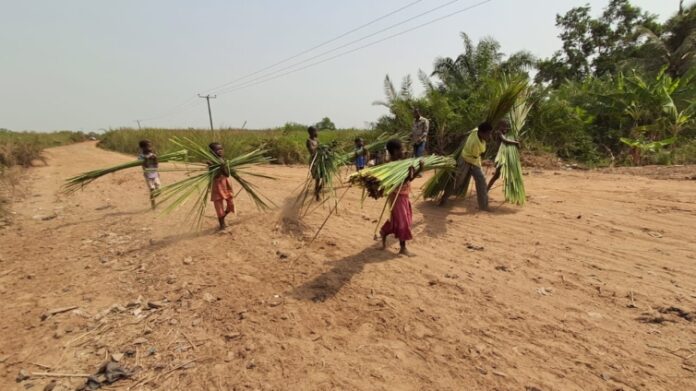Nestled in the scenic South Tongu District of the Volta Region lies Aglokpovia, a community where the art of mat weaving has thrived for generations.
This craft, predominantly upheld by the women of the village, has not only been a cultural cornerstone but also a vital source of income for families.
However, despite its deep-rooted tradition, the mat weaving industry faces significant challenges that hinder its ability to contribute meaningfully to the local economy.
While the mats crafted in Aglokpovia are symbols of skill and resilience, the industry is hampered by outdated tools, lack of market access, and insufficient investment.
The intricate designs woven into each mat reflect hard work and dedication, but for many women, the opportunity to benefit from their craft remains out of reach.
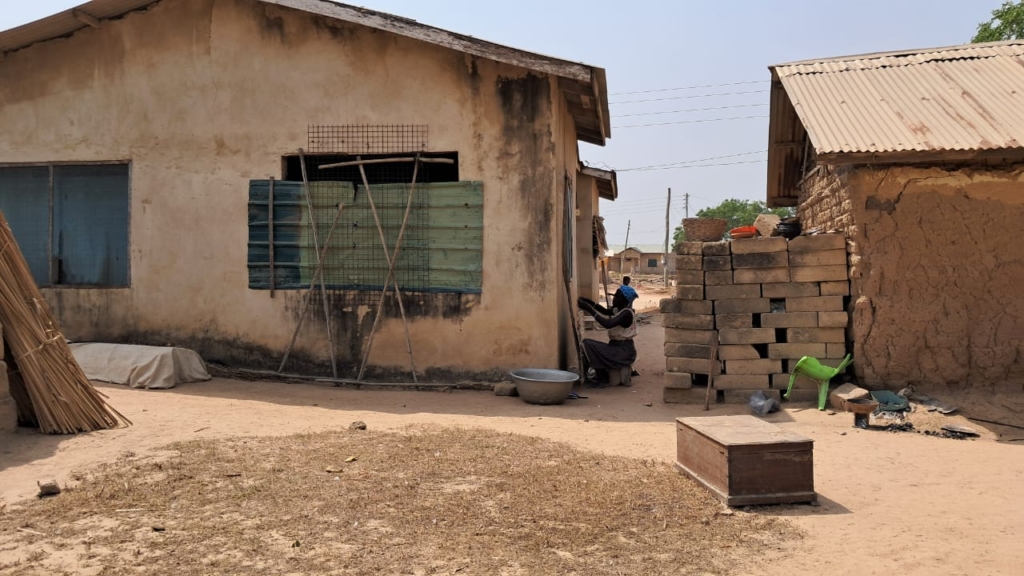
A Tradition on the Brink
Victoria Dzekloe, the Assemblywoman and Presiding Member of the South Tongu District, describes mat weaving as both a gift and a challenge for her community.
“This is more than just a craft; it’s part of who we are. Yet, our women are unable to fully benefit because there are no structured ways to market their mats effectively,” she lamented.
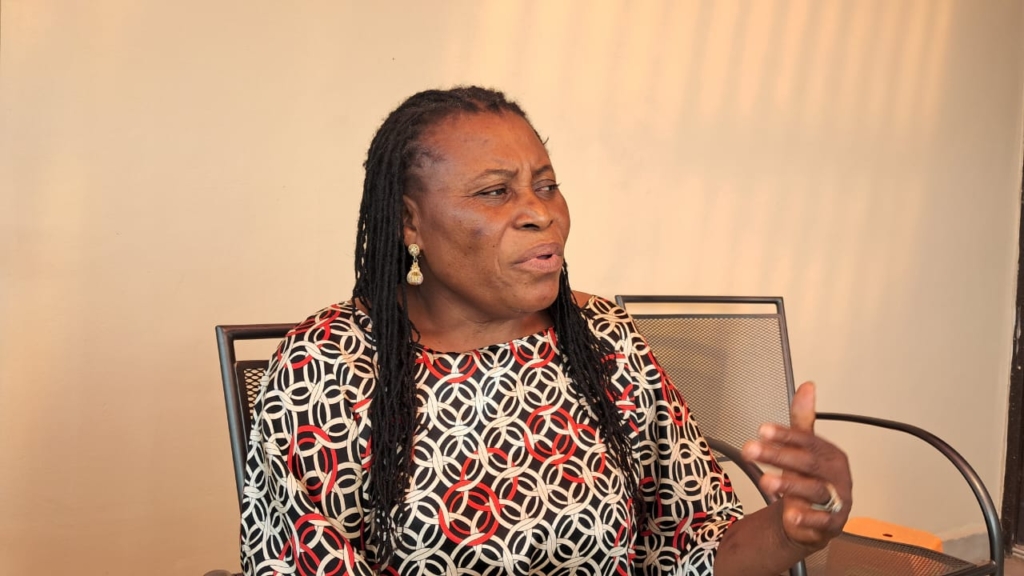
Weavers rely on simple, traditional tools and materials to create mats that reflect resilience and skill. However, the absence of a centralized market or proper storage means that many products remain unsold for weeks, even months.
“You see the mats stacked up in homes, collecting dust while their creators struggle to make ends meet,” Dzekloe explained.
A Vision for Change
Determined to change the narrative, Dzekloe and the people of Aglokpovia have a bold vision: a state-of-the-art mat weaving centre that will serve as a production hub, marketplace, and economic springboard.
This facility would enable bulk sales and attract buyers from neighbouring countries such as Togo and Nigeria, opening up new markets and opportunities for local weavers.
“Imagine a place where our women can showcase their mats to the world, where buyers can come directly to purchase in bulk. This would not only increase income but also put South Tongu on the map as a centre of cultural and economic excellence,” Dzekloe explained.
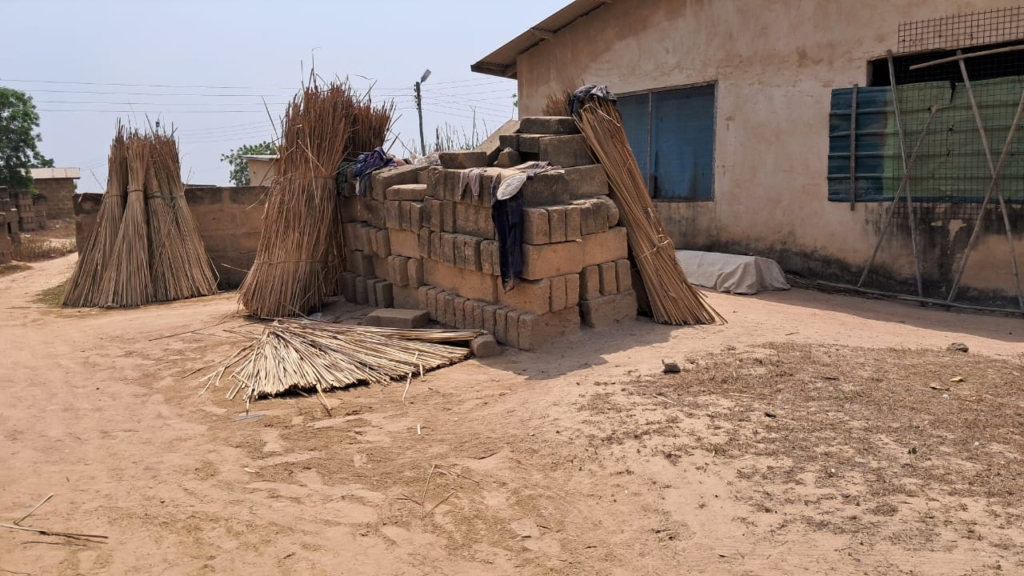
Economic Empowerment Through Heritage
The proposed mat weaving centre promises to do more than just enhance sales. It would empower women financially, allowing them to provide better education for their children, access healthcare, and invest in their futures.
“This is not just about selling mats; it’s about creating a ripple effect that will uplift our entire community,” Dzekloe emphasised.
Additionally, the centre could serve as a cultural landmark, preserving the art of mat weaving for future generations, while promoting eco-friendly, locally sourced products that align with global sustainability goals.
A Call for Urgent Action
To bring this vision to life, Dzekloe is calling on local authorities, development partners, NGOs, and philanthropic organisations to invest in the community.
“We need financial and technical support to build this centre and train our women in modern marketing techniques. This is an opportunity to transform lives and showcase the richness of our culture,” she urged.
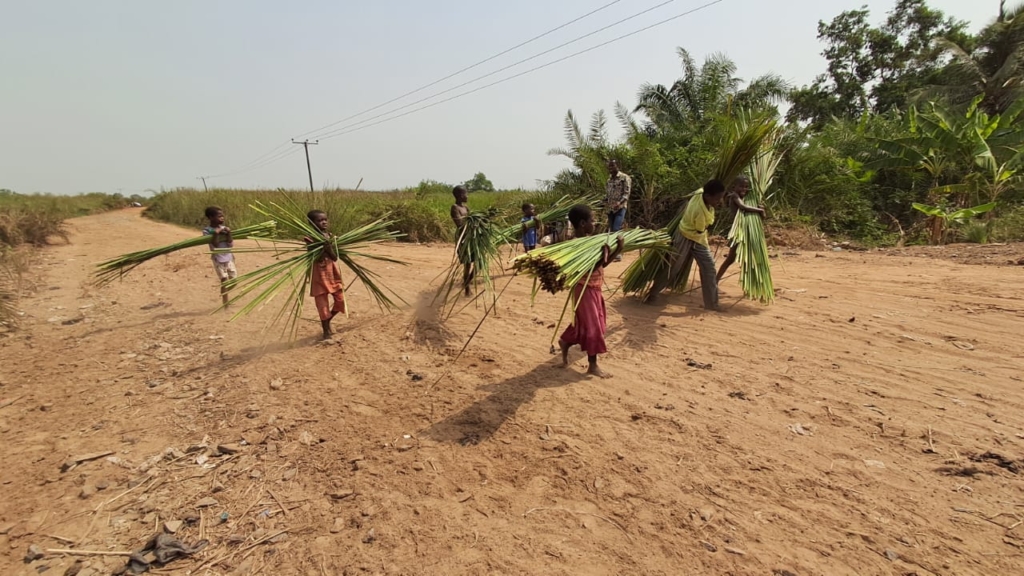
For the women of Aglokpovia, the weaving loom is more than just a tool; it is a lifeline and a testament to their strength and creativity.
With the right support, this vibrant tradition can become a powerful engine for economic transformation, breathing new life into South Tongu and setting a precedent for community-driven development.
The people of South Tongu now await the world’s response to their call – a call to preserve heritage, empower women, and unlock the boundless potential of a craft that has sustained them for generations.
ALSO READ:

